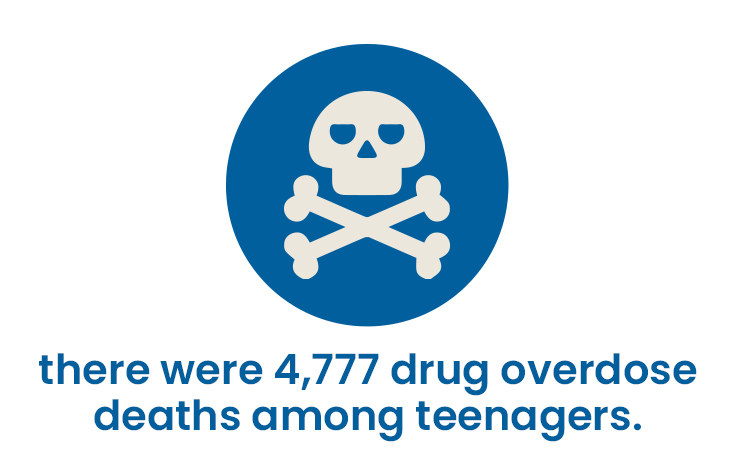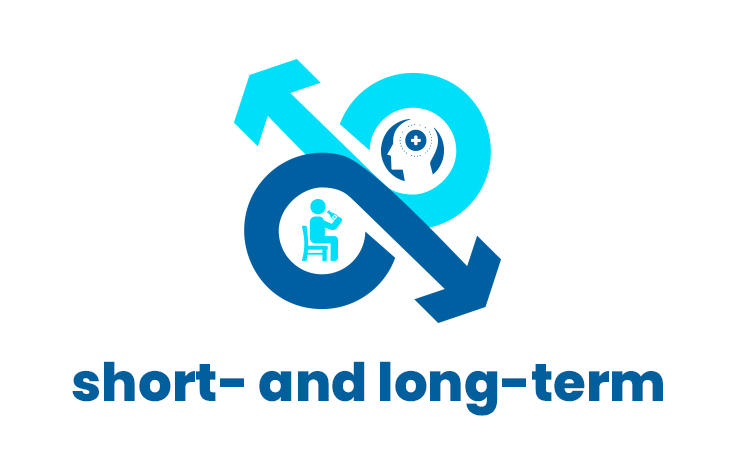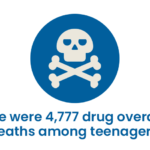Alcoholism is a serious condition that reduces a person’s quality of life and causes long-term health problems. Knowing the warning signs of this condition can help you determine whether it’s time for you or a loved one to get help at an addiction treatment center. A treatment center can help see you safely through alcohol withdrawal and also help you establish new, healthy habits that reduce your desire to drink and improve your overall livelihood.
Continue reading to learn the top warning signs of alcoholism and what you can do next if you or a loved one needs help today.
How Common Is Alcoholism?
Alcohol is the most commonly misused substance in the United States. According to the National Institutes of Health (NIH), alcohol addiction affects an estimated 14.5 million Americans aged 12 years and older, representing 5.3% of this population. Additionally, 25.8% of adults report binge drinking during the past month, and 6.3% report engaging in heavy alcohol use during the same period.
All these numbers exclude the number of people who are struggling with alcoholism in secret.
What Are Signs of Alcoholism?
Alcohol is widely used and often easily accessible to people of all ages in the U.S. It is available at restaurants, bars, sporting events, parties, and grocery stores and is included in many traditions and celebrations. Sometimes it can be difficult to determine when a person is misusing alcohol because alcohol consumption is socially acceptable in so many situations.
Knowing the short- and long-term side effects of alcohol use can often help you determine whether a person is misusing alcohol.
Short-term effects of alcohol include:
- Abrupt changes in mood and personality
- Distorted vision and hearing
- Drowsiness
- Impaired judgment
- Poor balance and coordination
- Slurred speech
Long-term effects of alcohol include:
- Cognitive problems
- Development of a mental health disorder, such as depression
- Financial problems
- Frequent illnesses
- Gastrointestinal problems
- High blood pressure
- Increased number of accidents and injuries
- Increased number of health problems
- Legal problems
- Liver damage
- Loss of sexual libido and fertility
- Problems at work or school
- Strained family relationships and friendships
- Vitamin B1 deficiency
If you or a loved one have been experiencing any of the above short- or long-term effects after you started drinking alcohol regularly, you may need help for alcohol addiction.
How Can You Tell If Someone Is Addicted to Alcohol?
All types of substance use disorders share the same set of behaviors, regardless of whether a person is uses alcohol or another substance. The NIH defines addiction as a complex relapsing brain disorder and mental illness characterized by compulsive behaviors.
Here are 11 signs and symptoms of alcohol addiction. A person gets defined as having alcohol use disorder if they meet at least two of the following criteria:
- Using alcohol in larger amounts over time or using alcohol for a longer period than was intended. For example, you may have been drinking only two beers a week last year, but are now drinking at least six beers every night.
- Want to stop drinking or reduce the amount you drink but be unable to control your alcohol use. For example, you may say that you plan to quit drinking after the weekend but return to the bar or liquor store on Monday.
- Spending lots of time buying alcohol, using alcohol, and recovering from the effects of alcohol. For example, you may drive an hour out of your way every few days to visit the liquor store that carries your favorite alcohol brand.
- Experiencing strong cravings or urges to use alcohol. For example, you may not be able to focus on vital tasks due to fighting the urge to buy and consume alcohol.
- Being unable to carry out significant obligations related to work, school, or family due to recurring alcohol use. For example, you may put off spending quality time with your children or attending their school events so you can spend that time drinking instead.
- Continuing to use alcohol despite the fact it is causing persistent or recurring social problems or relationship problems. For example, you continue to drink every night before coming to rehab even though it leads to frequent arguments between you and your partner.
- Give up important social, work, or recreational activities, so you can spend time drinking instead. For example, you stop going to the gym or attending book club meetings so you can stay home and drink.
- Continuing to use alcohol in situations physically hazardous for you to do so. For example, you keep drinking high amounts of alcohol at the bar despite knowing you have to spend 45 minutes on the road driving home.
- Continuing to use alcohol despite knowing it is causing or worsening your physical and/or mental health. For example, you keep drinking after being diagnosed with high blood pressure despite knowing alcohol use is causing your blood pressure to spike.
- Developing a tolerance for alcohol due to regular use. For example, you now need an entire bottle of wine to feel its effects rather than one glass of wine.
- Experiencing alcohol withdrawal symptoms when you suddenly stop drinking alcohol. For example, you experience strong shaking and nausea after going 12 hours without alcohol.
What Are Common Alcohol Withdrawal Symptoms?
Hangovers share many of the same symptoms as alcohol withdrawal, making it easy to confuse these two conditions. The main difference between hangovers and alcohol withdrawal is their timeline.
Hangovers share many of the same symptoms as alcohol withdrawal, making it easy to confuse these two conditions. The main difference between hangovers and alcohol withdrawal is their timeline.
Hangovers usually last no more than 24 hours, while alcohol withdrawal typically lasts between 48 hours and 10 days. Hangovers normally begin the following morning after a day or night of heavy drinking. Alcohol withdrawal symptoms begin sometime during the first 24 hours after the last drink, peak after 36 to 72 hours, then gradually resolve over several days.
Common alcohol withdrawal symptoms include:
- Agitation
- Anxiety
- Appetite loss
- Cloudy thinking
- Depression
- Fatigue
- Fever
- Hallucinations
- Headaches
- Insomnia
- Irritability and mood swings
- Nausea and vomiting
- Nightmares
- Pale skin
- Rapid heart rate
- Seizures
- Severe confusion (delirium)
- Shaking and tremors
- Sweating
Not everyone who is struggling with alcoholism will experience all these symptoms when abruptly discontinuing alcohol use. People who have been drinking heavy amounts of alcohol for several years may experience highly severe symptoms, along with seizures, confusion, and hallucinations. On the other hand, people who have been struggling with addiction for several months may experience mild symptoms that go away after a few days.
Alcohol withdrawal can be extremely dangerous, even if you are diagnosed with a mild form of alcohol use disorder. When not properly treated or managed, alcohol withdrawal can lead to complications, including dehydration, malnutrition, heart failure, and death. The safest way to recover from alcohol addiction is to stay at an addiction treatment center where you can be closely monitored and cared for by experienced nurses and doctors who can prevent complications.
What Is the Best Treatment for Alcoholism?
Many people who suffer from alcohol addiction are hesitant to seek treatment. This may be because they get afraid of being harshly judged or mistreated or because they think their addiction isn’t severe enough to require professional treatment. Others may be scared of going through withdrawal or don’t think they can afford treatment.
Regardless of why you or your loved one may not want to seek treatment, it’s critical to know that professional treatment is the most promising way to achieve long-term sobriety. Treatment can often help you avoid many of the pains and hardships you may face when trying to recover on your own without medical care or therapy.
Alcohol detox and behavioral therapy in a residential treatment program are the best treatments for alcohol addiction. Alcohol detox addresses physical symptoms of alcohol withdrawal. Behavioral therapy addresses the psychological symptoms of addiction.
Alcohol Detox
The purpose of alcohol detox is to help you get safely through alcohol withdrawal with a reduced risk of complications. Trained nurses and doctors will monitor you around the clock to ensure you are not at risk for dehydration or seizures. Medications also get used to relieve withdrawal symptoms and help you feel as comfortable as possible while going through detox.
Behavioral Therapy
Behavioral therapy in an alcohol rehab program helps you change harmful behaviors related to alcohol misuse. It also teaches you vital skills that help you successfully manage relapse triggers and stay sober. Patients receive several behavioral therapies throughout the day—all of which get tailored to each person based on the root causes of their addiction. Therapy takes place in both individual and group settings, including with peers who were also abusing alcohol before coming to rehab.
Patients who receive treatment in a residential rehab program gain access to the facility’s amenities, including a fitness center and game room. Nutritious meals are prepared and served three times a day to help patients strengthen their immune systems after a period of alcohol and substance abuse. Recreational activities and events are also available for patients to enjoy between therapy sessions and in the evenings.
Getting Help for Substance Abuse at Haven Detox
Haven Detox offers drug and alcohol detox treatments and residential rehab programs in Worcester, Massachusetts, and West Palm Beach, Florida. Contact us today at (561) 220-3647 to learn more about our addiction treatment programs and to receive medical advice about the best treatments for your addiction type. Our goal is to help you experience a safe, long-term recovery from drug and alcohol abuse.











